Religion and Social Justice in America: A Secular Alternative?
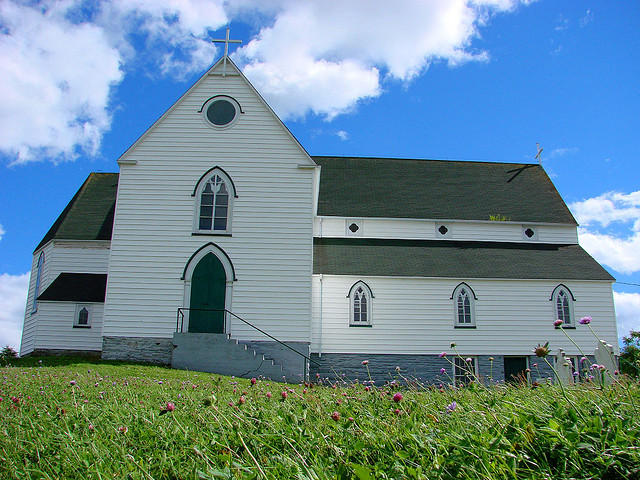
This piece is adapted from my research and notes for the speech I gave this past Sunday, May 20th, at the Orange County Freethought Alliance Conference. The talk was entitled “Push and Pull: The Role of Religion in Social Justice.” The titles of the previous two pieces, as well as this one, have been altered thanks to the very apt observation by Pseudonym on the US-centric nature of my writing.
Progress on LGBT rights within religion aside, why has religion generally not been great for women’s and LGBT rights as opposed to those of African-Americans?
There are two main factors at play here. First, Christianity is less strongly against the rights of those who aren’t white than against the rights of women and people who are not straight. The Bible doesn’t quite say “thou shalt oppress those with dark skin,” but many of its rules and sayings about women and the non-straight are quite oppressive. The second is that religion’s role as a community-building force has been waning significantly. Americans are far more likely to church hop due to the increased frequency of relocation or simple choice. This means that they are subject to far less of the social pressure that they would have experienced in the past. In addition, people are considering themselves “spiritual, but not religious” or its cousin, “lovers of Jesus who hate religion” in ever-growing numbers.
This exodus from church and dilution of the power of organized religion has has another effect: the loudest, best-funded, most politically-active, and most organized churches are often the more conservative ones. Further amplifying this effect is the fact that fundamentalist belief makes for strong community ties — feeling that you’re outside the mainstream, that you’re oppressed, and that you need to fight against the entirety of the rest of society is a great way to unite people.
It can be hard to compete with the Christian Right given the fragmentation among those opposed to it. Those of us who are non-religious are generally not fans of the religious in general, even those who are pro-LGBT. This is not all the fault of the non-religion, as progressive religious folk often do not speak up except to protest when the non-religious claim that the Christian Right version of their religion is Christianity. Instead of speaking up most loudly against what they other Christians’ misuse of their faith, much of their efforts seem to focus on the NALTing.
In a world that lacks central dogma and has little to force us to like each other, how are we to organize like churches? The answer is that we cannot, at least not in the same way. Even churches cannot be central forces in the way in which they used to be. Instead, activism has become more grassroots and more reliant on a multitude of voices. This isn’t necessarily a bad thing, as long as we do not forget to to listen to each other and corroborate when appropriate. If Dan Savage can get a devout Catholic to say that he is right, there must be some hope.


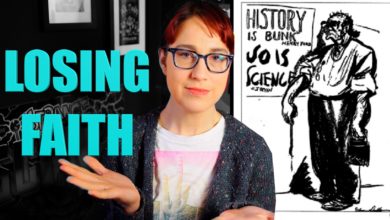
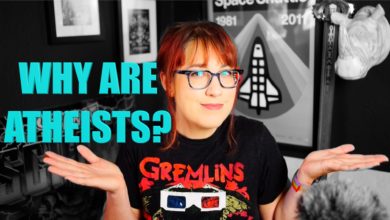
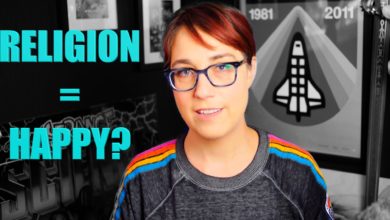
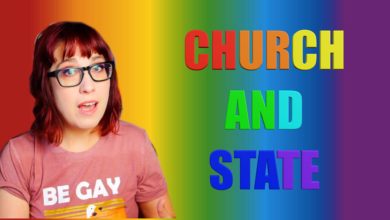
Aren’t there passages in the Bible justifying slavery? I recall blacks being described as the “inferior children of Ham”. The Nazis in part derived their racial supremacy and genocidal tendencies by exploiting an already pre-existing anti-semitism that was strongly rooted in the Bible ie. the Jews killed Christ. I think Christianity like all religions is a double edge sword that can simultaneously be a force for social justice and also for oppression regardless of whether the trait is race, gender, sexual orientation, etc..
Let’s take an ideology like Marxism which is an economic philosphy with the aim of fairly distributing wealth via state ownership and regulation. There is nothing about Marxism that is homophobic or misogynist. Yet Marxism morphed into Stalinism, the Khmer Rouge and North Korea’s Juche. All of the followers of these ideologies were/are fervently homophobic and misogynist.
In the backdrop of longstanding bigotry (patriarchy, homophobia, white supremacy, etc…) spanning thousands of years, any newly introduced noble ideology will eventually be twisted and perverted into something oppressive ie. “All animals are equal but some are more equal than others”.
I criticized religion in the first piece. I’m not saying that religion had a role that something else couldn’t fill, just acknowledging its role.
Thing is, what makes religions more poisonous than “something else” is that most of the something else’s, for example, people that follow the guiding principles of something like Star Trek, do not argue that Star Trek is true, that is has no flaws, or that questioning any part of it is unacceptable. Religions are stories, nothing more, or less, but they are stories made by people that wanted power, and control, for people that wanted guidance and stability. Its very hard in that dynamic for the first one to give up power, or the later to successfully question the solutions given. Its much easier to do that if a) no one claims its infallible, or b) its created by the people seeking guidance and stability, instead of by some person/group, who claims to be offering those things to someone else.
The whole dynamic of the system is backwards, and all means to inquire to truth is twisted into a miasma of self reference and means to avoid hard questions. Yes, it had a role, the problem is, it had the same role in fostering civilization that the first spear thrown at another person, instead of an animal did. It presented a means to defend the group, even from its own mistakes. To bury its head in the sand. To stop thinking about what was being done right, or wrong, and just do things on ‘tradition’. There cannot be a better way, so stop looking. There is nothing over the other hill, so don’t go there. There is no reason to question why it rains, I have said why, and you should be satisfied with it. How much better if the person giving such certainties is also the primary beneficiary of it? How much better if, being 100% wrong about something, doesn’t matter, so long as the group does better than the poor fools a village over, who actually tried to figure the thing out, instead of just avoiding it. If we had religion the day fire was discovered, there was one sect proclaiming it a sign of divine intervention, and another declaring that it should be avoided at all cost, for if it ever got loose, the whole village would die from it.
The role it has played is that of a child leading the blindfolded group around by the hand. One hopes the child doesn’t let go, make a mistake, or intentionally lead the group into trouble, but the child may not even know when it is about to do any of those things. The survivors presume they where well guided. The rest, die along with the unfortunate child that led them off a cliff. Its not a matter of “if” religion has played a role, while something else could have instead. Its a question of whether it made sense, for so long a time, and especially now, to consult tea leaves as to which path to follow, instead of learning to read the road signs.
The things about Ham, and almost everything about racial groups outside of the specific kingdoms/tribes mentioned in the Bible, are apocrypha. Extrapolations made by Catholic priests long after the establishment of the Church.
“Progress on LGBT rights within religion aside, why has religion generally not been great for women’s and LGBT rights as opposed to those of African-Americans?”
If you read the bible, you do see passages that speak against homosexual relations.
And IIRC, the bible does ask for women to be subordinate toward their husbands.
It’s part of the teachings that come from various organized religons that make progress for LGBT and women’s rights so slow.
I know the Catholics (at least, “true Catholics”) consider homosexuality an abomination. How does one combat that sort of thinking, especially when the leading pontiff teaches it?
And it doesn’t help when women are excluded from religous teachings or are depicted in less than favorable ways (consider the story of Adam and Eve; Eve is shown as accepting the forbidden fruit and giving it to Adam).
The women in the bible that do get favorable treatment are shown to be those that submit to actions beyond their will. Consider the story of Mary; without as much as a how-do-you-do, she’s told she’ll bear God’s son.
She’s not asked “Will you do this?”
She’s told “You will do this!”
Is it any wonder the religious right has the image they do of women in regards to how they should be treated or behave, according to the bible?
Did you stop reading right after that? I do make explicit mention of oppressive verses directly following my rhetorical question.
“Even churches cannot be central forces in the way in which they used to be. Instead, activism has become more grassroots and more reliant on a multitude of voices.”
Good point…how we create community is definitely changing rapidly anyway. And the Internet certainly has helped alter things a great deal.
Heina,
You did a nice job concluding this.